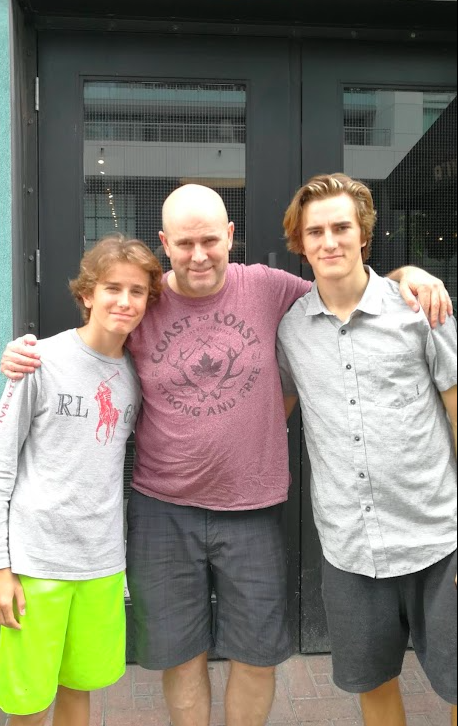Want to Know How Your Teen is Really Doing? Start With These 5 Questions
There’s a moment many parents quietly reach.
You realize your child is growing into their own world. Their own thoughts. Their own private struggles. You still talk, but the conversations feel lighter, shorter, safer. And you start wondering if you still see them the way you once did. Or if they see you the same way they used to.
It’s been many years since driving home from hockey practices and the only thing that mattered to them was the ring pop in their mouth. Life was pretty simple back then.
I’ve felt that with my sons the last few years. We are still very close. We check in. We stay in touch. But I can tell there is more beneath the surface. Life has shaped them in ways most people will never understand. Losing a sibling does that. It changes how you carry yourself through the world.
I’ve been thinking a lot about connection lately. How it isn’t built in one big conversation, but in the small, ordinary moments. The quiet car rides. The late-night kitchen talks. Even just sitting in the same room, hanging out, without an urgency to dig into the guts of their world.
At The MentorWell, we try to remind parents of this. You don’t need to have the perfect words. You don’t need to solve everything. You only need to stay present. Progress often shows up in very small steps, and we look at how far a young person has come rather than where they haven’t reached yet.
This is the difference in feeling elated versus deflated.
Here are five questions that can help open the door a little. Not to push. Not to pry. Just to make space for connection that help open that door:
1. What’s one thing you’re proud of from this year?
This helps them see their own growth. Even small wins matter. This question isn’t just about achievements; it’s about helping them recognize their growth. It could be something as simple as making a tough decision, navigating a tricky situation, or even taking care of themselves.
I want Zac to reflect on his first full time job, post university and Sawyer to think about how he’s really enjoying university life. Focusing on their wins, big or small, is a chance to celebrate who they are becoming. More importantly, they’re accomplishing important stuff, but sometimes need to acknowledge it.
2. What was the hardest part of this year and how did you get through it?
You don’t need details. This is about showing belief in their resilience.
Teens and young adults often carry more than they let on. My boys have faced challenges, even if they haven’t shared every detail.
This question allows them to share those struggles if they’re ready. And if they’re not? That’s okay, too. Just asking shows you’re there for them, no matter what.
3. Is there something you wish you could have done differently?
Not regret. Reflection. Learning. Awareness.
We all look back and think about things we’d change. I do it all the time. This question encourages reflection for teens and young adults and helps them see how they’re learning and growing.
It’s not about pointing out mistakes but helping them recognize how those moments can shape their future. Mistakes or bad decisions, aren’t always a bad thing, especially when there’s a lesson we can learn from.
4. What are you looking forward to next year?
Hope is fuel. Even a small spark is enough.
The end of the year isn’t just about looking back; it’s also about looking ahead. This question shifts the focus to hope, excitement, and what’s next.
Maybe Zac is already dreaming about his next adventure, or Sawyer has a goal he’s quietly working toward. Whatever they’re looking forward to, it’s a chance to encourage and support them.
Looking toward the future helps to assure there is one.
5. How can I support you better going forward?
This takes courage. It builds trust. Asking matters more than the answer.
It’s difficult to ask, but it shows humility and love. I don’t have all the answers, and my boys don’t expect me to. But asking this question gives them the space to tell me what they need, whether it’s advice, space, or just knowing I’m here.
________________________________
These questions are not about fixing anything.
They are about presence.
Attention.
Care.
Your teen may not open up right away. That’s okay. The message beneath the questions is the real gift:
I’m here. I’m paying attention. I care about who you are becoming.
Small steps count.
Small wins count.
Connection happens in the quiet moments.
Try one of these this week.
Not to get an answer.
But to gently open the door.
I’d love to hear how it goes.


